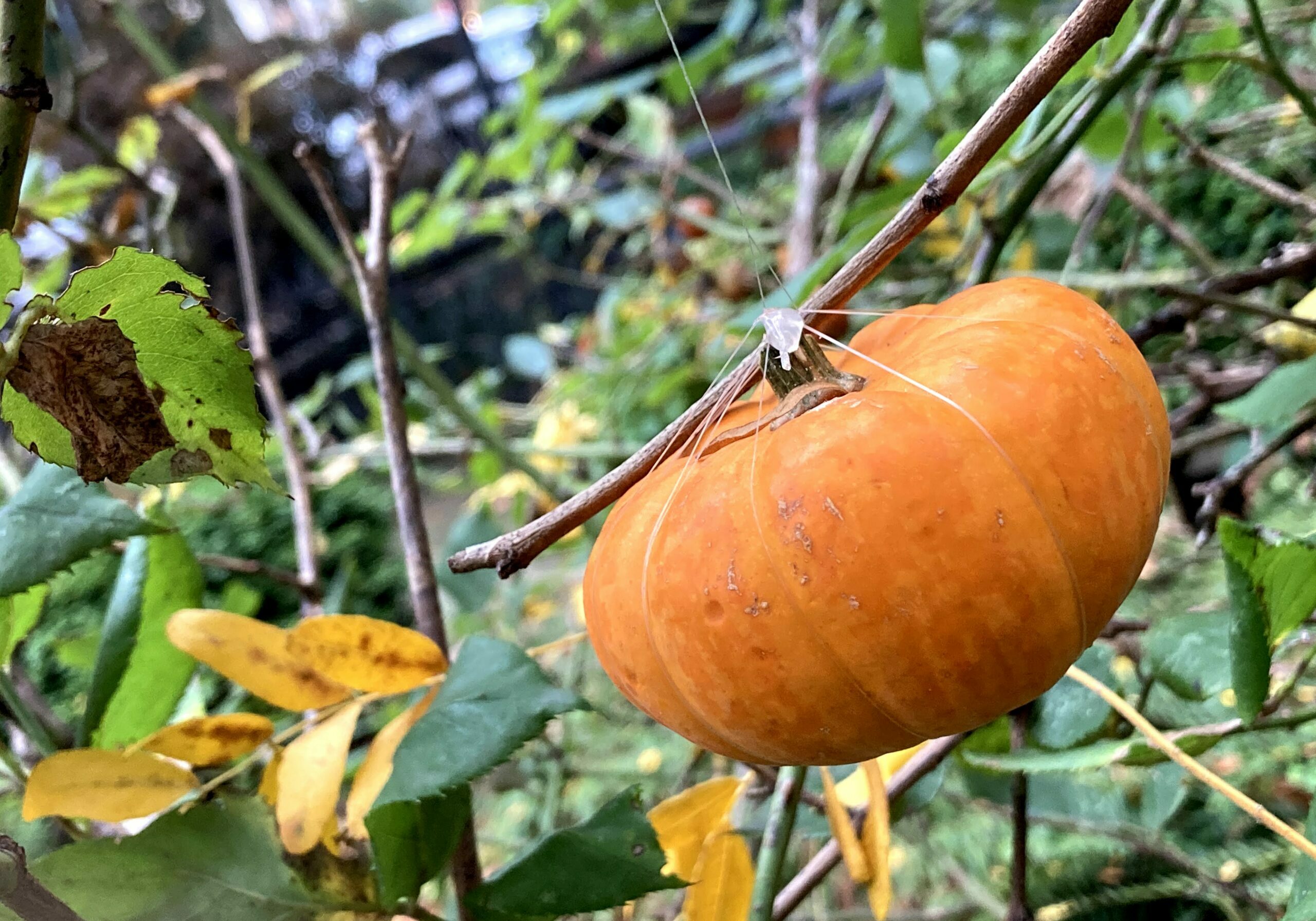January 10, 2024
The framework I use to audit my hobbies

I don’t have hobbies, I have containers of meaning.
I have a collection of regular activities and amusements that are done for enjoyment.
What’s different about my approach is the framing. I view my hobbies as containers of meaning, as unique buckets into which I make regular physical, psychological, emotional and spiritual investments. And that helps the activities assume greater weight and significance in my life.
This frame may sound corny and pretentious; it could merely be a linguistic semantic trick I’m playing on myself; and it might not even be fair, real or true.
But none of that matters, because it works for me.
My sole currency is positive outcomes. Nothing else matters.
Recently my friend was telling me how he felt bored in his life. Which, as we all know, is not a real feeling, but a placeholder term used by people who aren’t in touch with their feelings. It’s easier and cheaper to say we’re bored than to say we’re feeling sad, lonely, isolated, uninspired, dissatisfied, lost, and so on.
Point being, I was telling my friend about my containers of meaning philosophy, and he asked if there was a method to the madness. To which I replied, absolutely. Most madness has a method, it simply needs to be reverse engineered, deconstructed and replicated.
Below I will take you through a framework to build your own containers of meaning. Here are the four categories.
Practical considerations, personal engagement, future orientation, intellectual stimulation.
Each contains reflective and evaluative questions to prompt critical thinking about your preferences, motivations and needs when it comes to engaging in meaningful pursuits. Along with that, there will be several examples to bring those containers to life.
Ultimately, the audit ensures boredom won’t swallow you whole, and bring a greater sense of intention, organization and discipline to your hobbies.
Starting with practical considerations.
These are the aspects of a hobby, such as time constraints, location flexibility, portability, financial costs, and health concerns. I find it’s key to choose containers of meaning that are convenient and promote your overall wellbeing.
Bullet points to consider are as follows.
Are you free to do this whenever you want, or are there external constraints of time and place you must adhere to?
If you want to take up jogging, there’s essentially nothing external to stop you, outside of inclement weather and geography. Now, if you live in the arctic circle nearby packs of shoreline carnivores, or in a war zone with an abundance of snipers and landmines, then going for run might not be an ideal pastime.
Drawing or coding might serve you better.
Next, is this activity portable and small, or is it big and fixed?
Photography is one of those containers of meaning you can pursue easily and with relatively compact and portable equipment. You can capture moments anytime, anywhere, and still scratch your creative itch.
But compare that to an endeavor like woodworking, which involves significant tools, materials and workshop space to do projects. Wood work is a meaningful activity nonetheless, but size, cost and flexibility should be taken into consideration.
Another question to ask is, does this hobby bring the possibility of embarrassment, or is it fairly safe and insulated?
In my estimation, the higher the risk profile of an endeavor, the higher the probability of making you happy. Things should be risky enough to feel like an emotional gamble, rather than a guaranteed success without a fight.
I’ve been a singer songwriter for thirty years, and it’s one of my great joys in life. But for a long time, I only performed my music for myself and my family. It wasn’t until I started busking in the park on a weekly basis for complete strangers, that I experienced higher levels of fulfillment.
Because now there was a whole new layer of vulnerability superimposed over my hobby. Performing in public had the possibility of failure that was an order of magnitude higher than simply strumming in my apartment. That layer of potential embarrassment challenged and inspired me creatively, which made me happier.
The next category in our hobby audit is personal engagement.
This refers to the level of interest, enjoyment, and connection we experience when participating in an endeavor.
Like alignment with personal desires, engagement of unique skills and talents, and the ability to feel useful. If you want to ensure you’re pursuing activities that bring you joy and fulfillment and a sense of purpose; rather than merely killing time and coping with anxiety, try a few of these questions.
Can this hobby be done meaningfully both alone or with other people?
My first ten years of practicing hot yoga took place exclusively inside a studio, with dozens of other students, and a certified instructor. I made countless friends, became a community leader, even wrote a book about my experiences.
Then the pandemic happened, and our studio shut its doors. I felt sad and lonely not going to my favorite studio every day. And yet, I adapted. Found a way to do hot yoga at home without skyrocketing the heating bill or stinking up the apartment. I bought space heaters, neoprene sauna suits, odor eliminating candles, and an audio recording of my favorite yoga instructor.
This setup replicated my hobby into a portable, independently contained practice. I now had total control over the process, rather than being beholden to outside limitations. While still personally engaging me and aligning with my desires.
How about this question? Will the activity require my unique skill stack, or can just anyone do it?
The former is preferential. We should pursue containers of meaning that have high enough barriers to entry that we feel a minimum viable usefulness. Otherwise we’re only passing the time.
Not that there isn’t a place in life for mindless, mundane activities. But in my experience, the probability of fulfillment is significantly higher when our natural genius and gifts can be engaged.
Remember, meaning is made, not found. When we choose to take part in activities that are growing inspiring, that is, they improve our existing skills and maybe even teach us new ones, it’s a guaranteed net gain.
One final consideration. Is there a service component within the activity, or is this one hundred percent for me?
I am a huge proponent of healthy selfishness, but I also don’t want to perpetuate my own loneliness. I aim to do things that make me feel connected to self, others, and the universe.
Back to the busking example from earlier. Playing my original music in a tunnel at the park is something I would still do if I was the last person on earth. But knowing that other people will be there, people who will appreciate my songs as a source of joy, inspiration and beauty, that reframes the activity as an act of service.
A gift that I give to my community. That leveled up the container of meaning for me in a way that playing guitar in my apartment never could.
Okay, for our third category in the hobby audit, let’s talk future orientation.
Keeping perspective about the potential long term impact of our pursuits. Assessing whether things can be sustained over time, whether they contribute to personal growth, and whether they align with our unique goals and aspirations.
Now, there’s no shame in getting really into something for six months and then never doing it again. Not everything has to be a forever thing.
The question is, can I make choices that provide enduring meaning, promote personal progress and continuity, and avoid stagnation and short term interests?
Because some hobbies are things we can do forever, while others have an expiration date.
I wrote my first book during my senior year of college. Published it right after graduation. Since then, I’ve written and published sixty additional books. Some sold tens of thousands of copies worldwide, some were pirated in countries whose names I cannot pronounce, and other books were completely ignored and nobody bought a goddamn copy.
It doesn’t matter to me, because it’s still a critical container of meaning. One that I can ostensibly keep filling until my death, or until my tendentious gets so bad that I have to replace my hands with hooks.
Compare that to a project like podcasting. I hosted and produced a product development and innovation gameshow for several years. That podcast brought me massive amounts of joy, growth and connection.
But it was exhausting. The labor intensity was way too high to warrant keeping it going in perpetuity. Which was fine. Not everything has to continue forever.
Either way, we should keep our future orientation radar on high alert.
Another question. Is there a steep learning curve that will be worth it, or is it too intimidating that I will give up or not start?
Whatever hobbies we pursue, we ought to try and optimize for incremental gratification. This will sustain our momentum over the long term.
The trick is, we have to be careful of extremes. If the payoff of a particular endeavor is too long term and too invisible, then we’ll have a low incentive to stick it out. On the other hand, if a hobby is too puny to get over the existential hump, it’ll feel pointless and unimportant.
How about this future orientation question? Will this help me go deeper into existing meaning, or would I have to go wide and create new meaning from whole cloth?
Huge distinction. Because starting from scratch is a bitch. Going from zero to one, and then one to two, that’s a massive learning curve.
Naturally, the payoffs can be extraordinary, and everyone should challenge themselves to do such things when it makes sense. But realistically, the vast majority of people will eventually drop off. What’s smarter is going deep rather than going wide.
Find the activities that are extensions of, or connected to, proven endeavors you already love, rather than a totally new thing starting from zero.
Here’s a case study.
I think it would be cool to make a video game. To take my body of creative work that I’ve been working on recently, and convert it into an interactive multiplayer digital experience that’s both fun and educational. Esports is a fifty bullion dollar a year industry, so why not hang my shingle?
Only problem is, that would be a very expensive, time consuming, difficult project on which I have low desire and less expertise. I can’t code, I can’t design, I suck at physics, and I stopped playing video games when I was eighteen. Making a game would be cool, but it would also be going wide.
Completely virgin territory.
Whereas creating a series of musical audiobook memoirs, including live performances, creative process deep dives and spoken word essays, would be going deep. Integrating parallel interests would make my current hobbies of writing, singing and public speaking, even more meaningful.
In fact, the audiobook could open up concurrent opportunities to do even more things. It’s not a mutually exclusive hobby. Doing it wouldn’t threaten or compete with other activities and amusements.
Thus far, our hobby audit includes questions for practical considerations, personal engagement and future orientation. Hopefully you’re thinking critically about your own containers of meaning, and feelings of boredom are fading away like a fart in the wind.
For our final category, let’s talk intellectual stimulation.
The cognitive engagement and mental challenges provided by a hobby. I saved this one for last since it’s the most important.
Personally, I am the most content when my hobbies involve my brain, promote learning, and provide opportunities for stretching my abilities. Now, I personally have no problem with anyone who wants to sit on their couch all day, smoke weed and binge watch reruns of nineties gameshows.
No judgments. Sounds kind of nice actually.
All I know is that I find intellectual stimulation to be essential for my hobby management. It fosters personal development, keeps my mind active and engaged, and provides me a sense of accomplishment and progress.
If you agree with that idea, here are several considerations around intellectual stimulation.
Is it easy to superimpose my unique brand of thinking over this activity, or will it just feel like a slog?
For example, if a new movie by one of my favorite directors comes out, I won’t simply stream it, watch it, and then move on with my life. First I stream it. And take notes while watching it. Afterwards, I enjoy reading critic reviews, finding interviews with the filmmaker, reading lines from the screenplay, checking out discussion threads in movie forums, and so on. Then I might go back and watch the film again with a new perspective. I always pick up nuances, jokes, camera angles and other details that I missed on the first watch.
Is that obsessive? Compulsive? Excessive?
Doesn’t matter, because all of that is meaningful to me. It sparks my brain and maximizes return on experience.
Another version of the question is, how can I level up my experience to engage all of my senses?
Like when I read a musician’s memoir. While turning the pages, I also listen to their entire song catalog, in chronological order. Both my learning and joy increase by a factor of ten. Makes the experience more three dimensional and memorable.
A final question for intellectual stimulation is, will this involve using my brain for real stretches of time on a regular basis?
When I think back to all of my abandoned hobbies, failed projects and botched identity experiments over the decades, more often than not, it’s because they were responses to anxiety, rather than containers of meaning.
I only did things to quell my difficult feelings of sadness, loneliness, depression, insecurity, and so on.
Whereas the hobbies that stuck were the activities that engaged my brain. Ideally, on a daily basis. Whether it was playing football in high school, working at the campus radio station in college, learning to do hypnosis meditation, or using artificial intelligence technology to inspire, improve and expand my own writing, the common denominator is intellectual stimulation.
As a recap, we explored four ways to frame hobbies as containers of meaning.
Practical considerations, personal engagement, future orientation and intellectual stimulation.
If you’re trapped in the purgatory between ecstasy and exhaustion, there’s still hope. If you feel the dreaded existential whiff of meaninglessness as you stand in the void between projects, don’t give up yet.
I understand you may feel like your life is on hold right now, and that’s okay. What’s keeps moving your story forward is bringing greater intention and organization to your physical, psychological, emotional and spiritual investments.
Doing so will help such activities assume greater weight and significance to you.
What if the method to your madness could be reverse engineered and more intentionally replicated?

